Russian German from Hesse - general and partisan named "Vinzo in the garden"
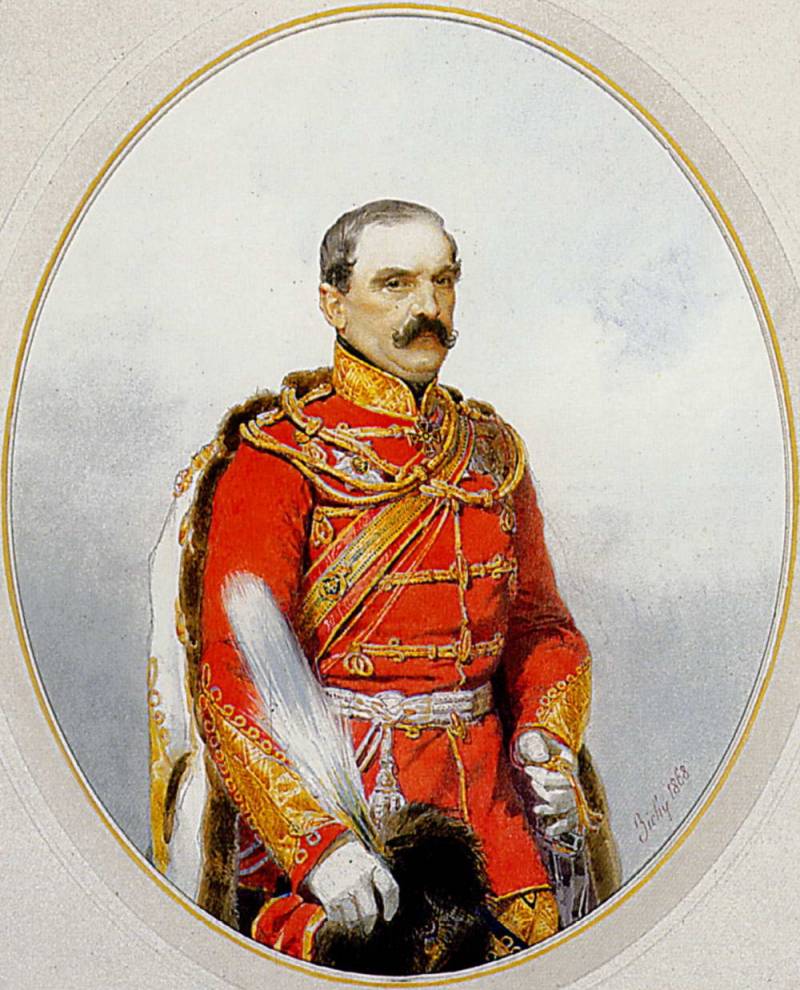
Baron Ferdinand Karl Friedrich Freyer von Wintzingerode fought all his life against France and Napoleon. He entered the Russian service three times, and when Russia made peace with France, he fought against Bonaparte and his marshals as part of the Austrian army. Was wounded, was taken prisoner, entered into history as the commander of the first partisan detachment, created on the orders of Barclay de Tolly, later almost brought Denis Davydov to justice. But let's not get ahead of ourselves and start the story in order.
Origin and early years
Ferdinand von Wintzingerode was a representative of an ancient Thuringian family, but was born on February 15, 1770 in the German city of Allendorf, which was part of the Landgraviate of Hesse-Kassel, which was called the "principality of mercenaries."
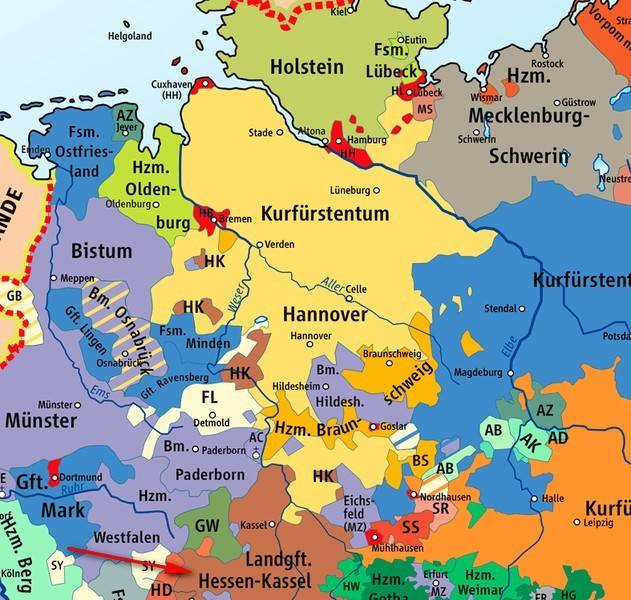
From 1677, the local landgraves rented out entire units of their army, which, it is said, sometimes reached 30 people. Men aged 16 to 30 served in the Hessian army; in order to receive exemption from military service, 250 thalers had to be paid into the treasury.
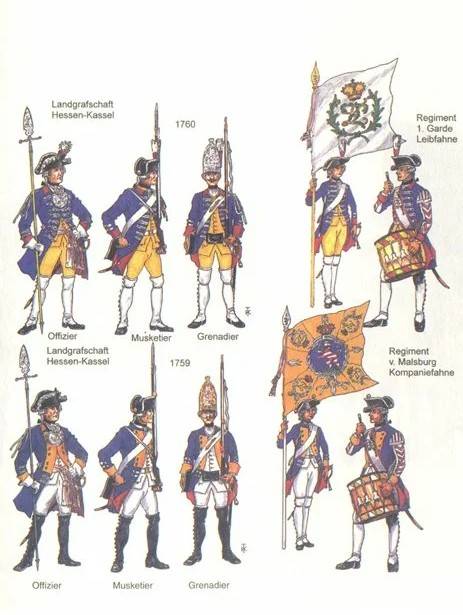
The Hessians had an excellent military reputation and were in high demand. And in 1744, during the second Silesian War, the Hessian units briefly found themselves in the opposing armies. One of the Landgraves of Hesse once said:
Indeed, more than half of this landgraviate's budget came from the trade in soldiers. In 1726, the British alone paid the Landgraviate £7 for renting 125 soldiers; in 1731, £12 for 240 Hessians. As a result, from 1760 to 1784. taxes in the landgraviate were reduced by about 30%.
By the way, 19 thousand Hessians fought against the rebellious American colonists for England, another 7 thousand at that time served in other British colonies.
In 1803, the status of this state was raised to an elector, but in 1806 Napoleon removed its ruler William I from power, and annexed the lands to the created kingdom of Westphalia, whose crown he presented to his brother Jerome. Ferdinand Winzingerode formally became a subject of this "jolly king" , because of which in the fall of 1812 he was almost shot on the orders of Napoleon: having learned that the captured Russian general was born in Hesse, he accused the captive of treason to his younger brother. But again, let's not get ahead of ourselves.
Ferdinand Winzingerode's father was the adjutant of Duke Karl Wilhelm Ferdinand of Brunswick, a well-known military leader, field marshal, participant in the Seven Years' War. It was he who commanded the Prussian troops in the unsuccessful battle for them with the French at Valmy (September 20, 1792) and in the battle of Auerstadt that ended in disaster (October 14, 1806, in this battle he was mortally wounded).
Ferdinand Wintzingerode followed in his father's footsteps. In 1785, at the age of 15, he had already graduated from the cadet corps in the city of Kassel. It must be said that, in addition to studying at the college, future cadets also studied a number of subjects at the local university (Collegium Carolinum), and therefore the Hessian officers were considered perhaps the most educated in Europe.
Ferdinand Wintzingerode began his service in the Hessian army, but in 1790 he volunteered for the Austrian army, where he took part in the suppression of the uprising in the Netherlands. In 1792–1793 in the rank of lieutenant of the rangers fought on the Rhine against the French Republic. He became a chamberlain of the Prussian Prince Ferdinand, then again served in the Austrian army - in the dragoon regiment of the Prince of Saxe-Coburg, took part in campaigns in Germany in 1795 and 1796.
First time in Russian service
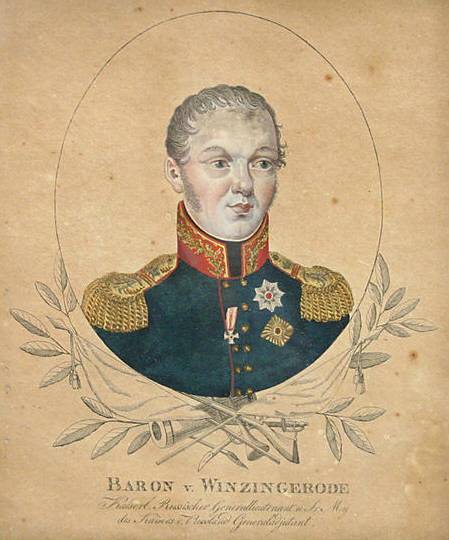
In July 1797, Ferdinand Wintzingerode joined the Russian army, receiving the rank of major of the Izmailovsky Life Guards Regiment and the post of adjutant to Grand Duke Konstantin Pavlovich. In Russia, they began to call him Ferdinand Fedorovich, and the soldiers, unable to pronounce the tricky German surname, changed it: Wintzingerode turned into "Wintz in the garden." It sounds very ambiguous and rather playful, but perhaps not too offensive.
After all, Barclay's surname, as we remember, was changed into "Chat and nothing more", and Nesselrode - into "Kissel like." And the St. Petersburg lane, named after the Scot Jacob Duncan, quickly became Dunkin. The original name was forgotten even by the old-timers, and in 1918 the Bolsheviks named the lane Krestyansky - so as not to offend the alleged peasant woman Evdokia.
Already in May 1798, Winzingerode was awarded the Order of St. Anne of the III degree and received the rank of colonel, but in February 1799 he left the Russian army in order to be able to fight against France once again. As part of the Austrian army, commanding the dragoon regiment of Archduke Ferdinand, he took part in the Italian campaign of 1799, in which the Austrians were allies of Suvorov. And, being in the Austrian service, he received from Paul I the Order of St. John of Jerusalem.
On September 19, 1801, Wintzingerode married the Polish countess Elena Rostvorovskaya, after which he again thought about returning to the Russian service.
War of the Third Coalition
Wintzingerode returned to Russia in November 1801 - at this time we see him as a colonel in the retinue of Alexander I in the quartermaster unit. In April, he received the rank of Major General and the post of Adjutant General of the Emperor. From May 16 to September 11, 1803, he served as chief of the Odessa Hussars.
For the first time, he fought with Napoleon as part of the Russian army in 1805 - during the War of the Third Coalition. But before that, he was sent to Berlin to negotiate with the Prussian king Frederick William III.
Meanwhile, after the unexpected surrender of the Austrian army of Mack at the fortress of Ulm, Russian troops, in order to avoid the blow of superior enemy forces, crossed the Danube at Mautern and destroyed the only bridge. Here, on the left bank, Mortier's corps appeared in front of them, which on October 30 in the battle of Krems (Dürrenstein) suffered heavy losses, but managed to avoid complete defeat and cross to the right bank.
Wintzingerode participated in the battle and was awarded the Order of St. George III degree. Now the Russian and French troops were separated by the Danube, the bridges across which - Taborsky, about 100 meters long, and Shpitsky, its length was 430 meters, were guarded by strong Austrian detachments. The bridges were also mined, and the Austrian security units had a clear order to destroy them immediately at the first appearance of the enemy. But the Tabor Bridge was captured without a single shot by the French generals Belliard (Chief of Staff of Murat's cavalry corps), Bertrand (Murat's adjutant) and Moissel (commander of artillery units). Posing as parliamentarians, they announced the cessation of hostilities, provided that the Taborsky and Shpitsky bridges were kept intact.
On the other side of the Danube, they entered into negotiations with the Austrian commander, Prince Karl Auersperg von Mautern, while French soldiers broke the locks on the lowered bridge lattice. Michael Kienmeier, a military general who managed to lead 10 thousand soldiers away from Ulm, literally begged the prince to give the order to destroy the bridge. The corporal, who remained unknown, forgot about subordination, shouted to the commander that the French were deceiving him - and was arrested on his orders. A few minutes later the bridge was captured by the French.
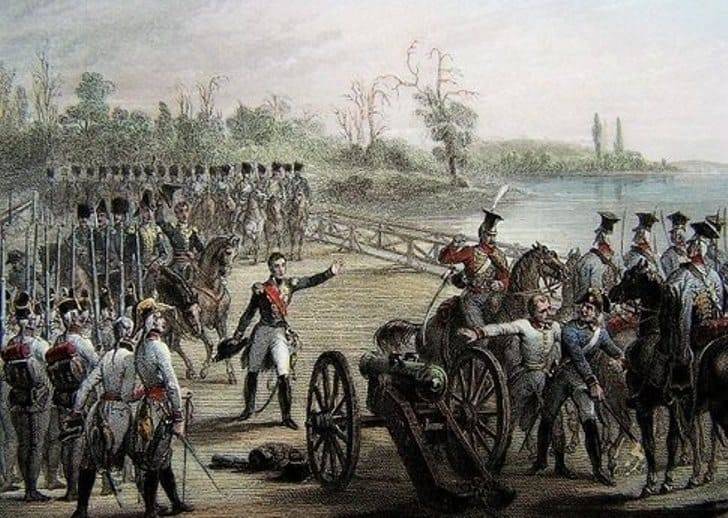
On November 1 (13), 1805, French troops entered Vienna, where they found about two thousand artillery pieces, a huge amount of ammunition, equipment and food.
Kutuzov was forced to give the order to retreat towards the Volyn army of General F. Buxgeden moving from Russia. The right flank of his troops was to cover the rearguard under the command of Major General P.I. Bagration.
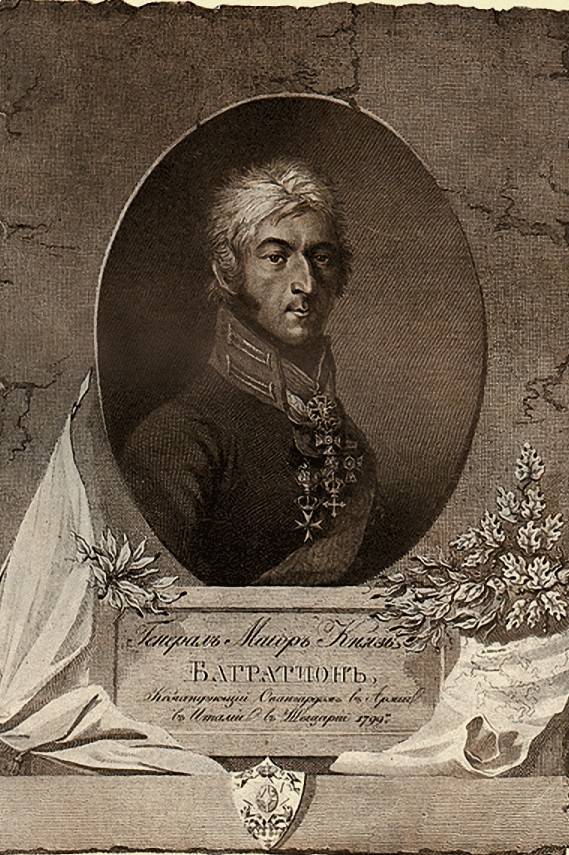
On November 3 (15), 1805, parts of Bagration took up positions north of the city of Hollabrunn - near the villages of Schöngraben and Grund. Soon the troops of Murat approached here, who decided to repeat his "Gascon trick": seeing the Austrian hussar regiment of Count Nostitz in front of him, he announced the conclusion of peace between Austria and France. Nostitz, who believed him, left his position, but Murat was also mistaken: he mistook the rearguard units of Bagration for the entire Russian army. The marshal decided to wait for Soult's corps to approach, but so that the Russians would not leave, he entered into negotiations.
Bagration gladly played along with him, and Ferdinand Winzengerode went to Murat as a truce, who successfully “chattered” the Gascon and even signed a “truce document” with him, copies of which were sent to Kutuzov and Napoleon. During these negotiations, the Russian army managed to make two transitions. Enraged by the stop of Murat, Napoleon ordered an immediate attack on Bagration, and on November 4, in the famous battle of Shengraben, 20 Frenchmen attacked a 7-strong Russian detachment.
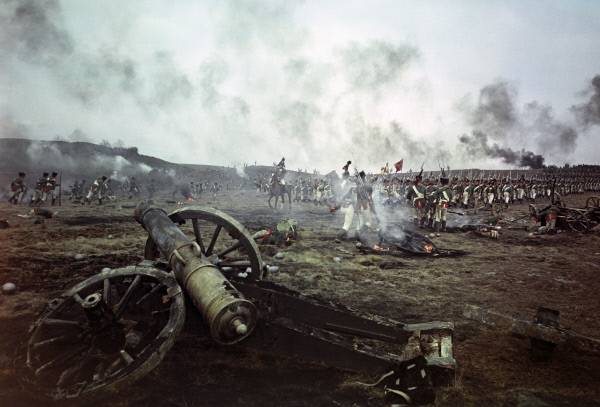
Bagration escaped defeat, although he lost a third of his personnel and 8 guns stuck in the mud. But the task assigned to him to delay the movement of the French army was completed.
In the battle of Austerlitz, Winzingerode was under Emperor Alexander I and, after breaking through the Russian positions in the center, tried to stop the fleeing soldiers. Then he was sent to Napoleon as a truce.
As we remember, at the beginning of 1806, Napoleon formed the Confederation of the Rhine, a vassal of France, of which he declared himself the protector.
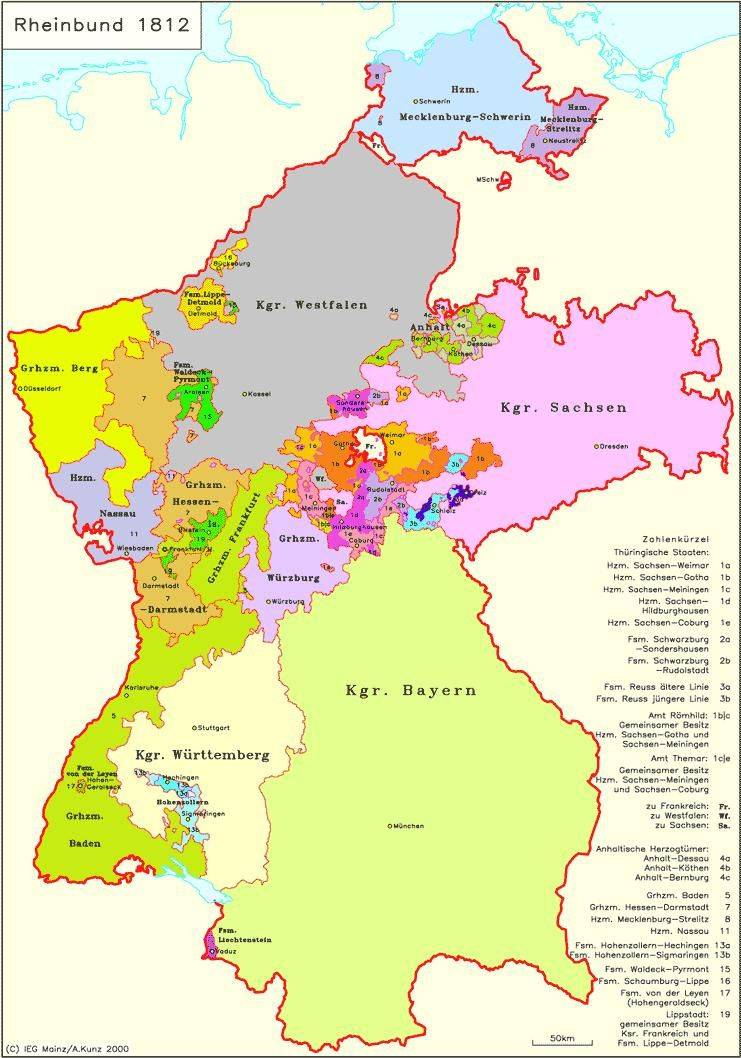
Wintzingerode painfully accepted the loss of independence by Hesse, and now Napoleon literally became his personal enemy.
Back in the Austrian army
In January 1807, Wintzingerode left Russia, and in 1809, with the outbreak of another war between Austria and France (the War of the Fifth Coalition), he again entered the Austrian army. Here he became a brigade commander of the XNUMXst Corps of Count Bellegarde and distinguished himself in the battle of Aspern-Essling, in which Napoleon's Marshal Lann was mortally wounded, and Wintzingerode was seriously wounded in the leg.
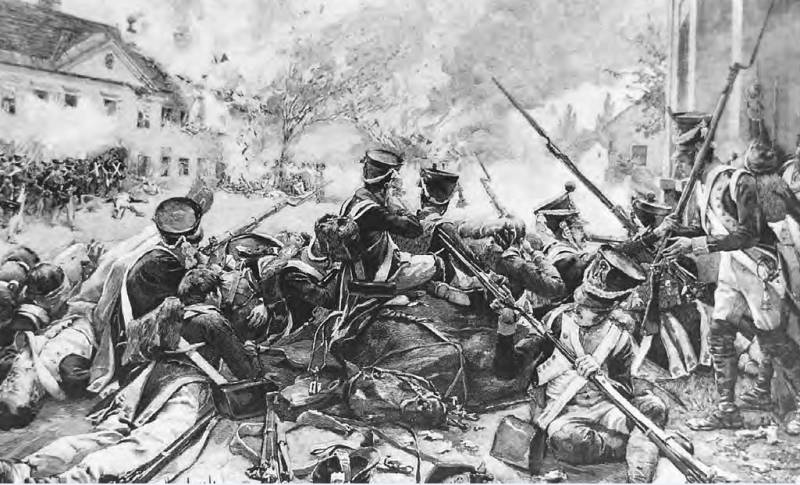
The Hessian was awarded the rank of field marshal-lieutenant (corresponding to the Russian rank of lieutenant general) and the Order of Maria Theresa. However, this war ended with the defeat of the Austrians in the pitched battle of Wagram. Austria ceded to France and its allies a total area of 32 thousand square miles with a population of 3,54 million people, was forced to pay indemnity and join the continental blockade of Britain. At the same time, an agreement was reached on the dynastic marriage of Napoleon with the Austrian princess Marie-Louise.
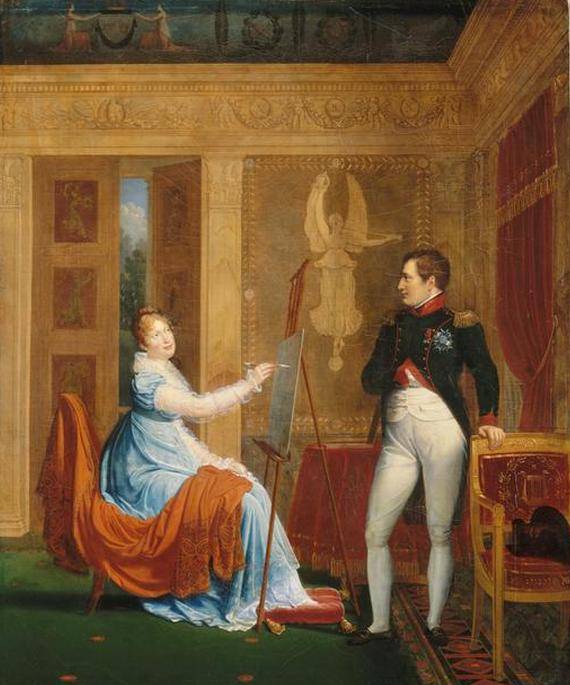
Return to Russia
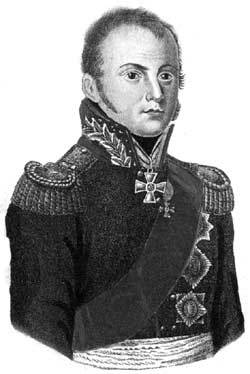
Winzingerode returned to Russia on the eve of a new big war - in May 1812. In Smolensk, it was Barclay de Tolly who ordered him to lead the first separate detachment for operations on enemy communications. The task was set as follows:
Such detachments were then called "flying" or partisan: from the French word "partie" - part (that is, a detachment operating separately from the main forces). And the armed detachments of civilians in those days were called "cordons".
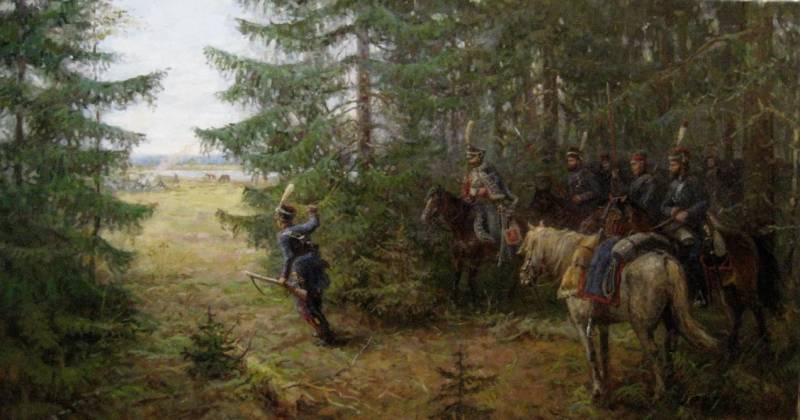
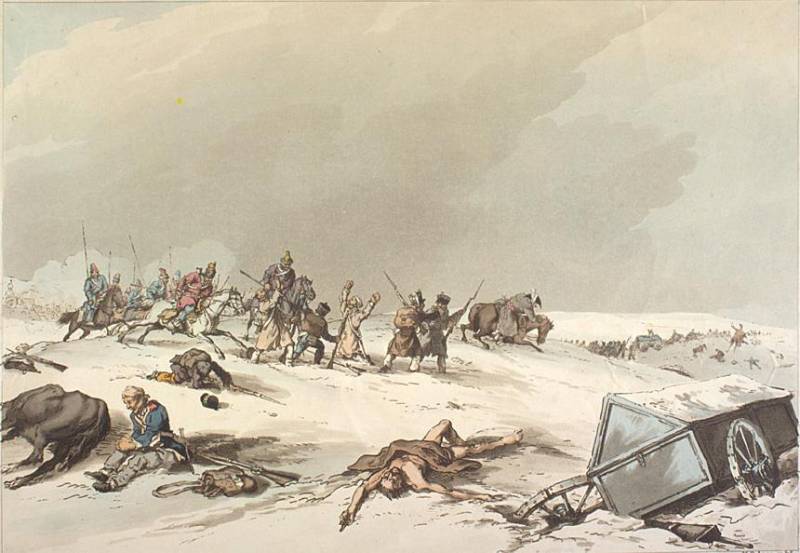
The Wintzingerode detachment attacked the French in Velizh, then captured Usvyat, which became his temporary base. Finally, he actually blocked Vitebsk, destroying all the foraging teams sent out from it, and then made a raid on Polotsk. Only prisoners were captured more than two thousand people.
Already on September 16, Wintzingerode received the rank of lieutenant general, and his detachment, replenished with warriors of the Tver militia, was renamed the observation corps, which, in addition to actions on the communications of the French army, was also supposed to cover the St. Petersburg direction.
But few people know about this: the attitude towards this partisan detachment in our country was influenced by the German surname of the commander and the service in it of A. Kh.
After the Battle of Borodino, Wintzingerode deployed his units between Mozhaisk and Volokolamsk. Having learned about the beginning of the French movement from Moscow, he missed the opportunity to be the first to inform Kutuzov's headquarters about the movement of the Great Army - and Kutuzov learned about this from Alexander Seslavin.
Let's digress a bit to report that the French retreating from Moscow was also seen by Dorokhov's partisans. But the first to understand that the whole Great Army was going to Maloyaroslavets was Seslavin.
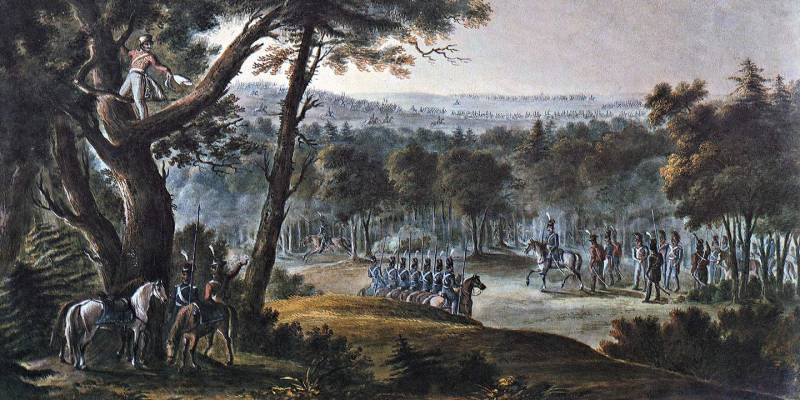
Thanks to his message, Dokhturov's corps started a battle near this city, after which Napoleon ordered a retreat to the west - along the devastated Old Smolensk road. It must be said that Kutuzov, who then retreated from Maloyaroslavets to Kaluga, for some time lost contact with the enemy army - and again, already at Vyazma, it was Seslavin who found the French.
But back to Wintzingerode, who then, on his own initiative, went to negotiate with Marshal Mortier. He later claimed that he intended to convince him not to follow Napoleon's order to blow up the Kremlin. However, in Moscow, Wintzingerode was arrested and sent to the emperor, who received him in Vereya. Upon learning that this Russian general was born in Hesse, Napoleon ordered that he be arrested as a subject of his brother Jerome and sent for trial to the Kingdom of Westphalia.
But near the town of Radoshkovichi, Minsk province, Wintzingerode was released by the Cossacks of the constable Dudkin from the "flying detachment" of Colonel A. Chernyshov, who would later be elevated to princely dignity, become Minister of War and Chairman of the State Council.
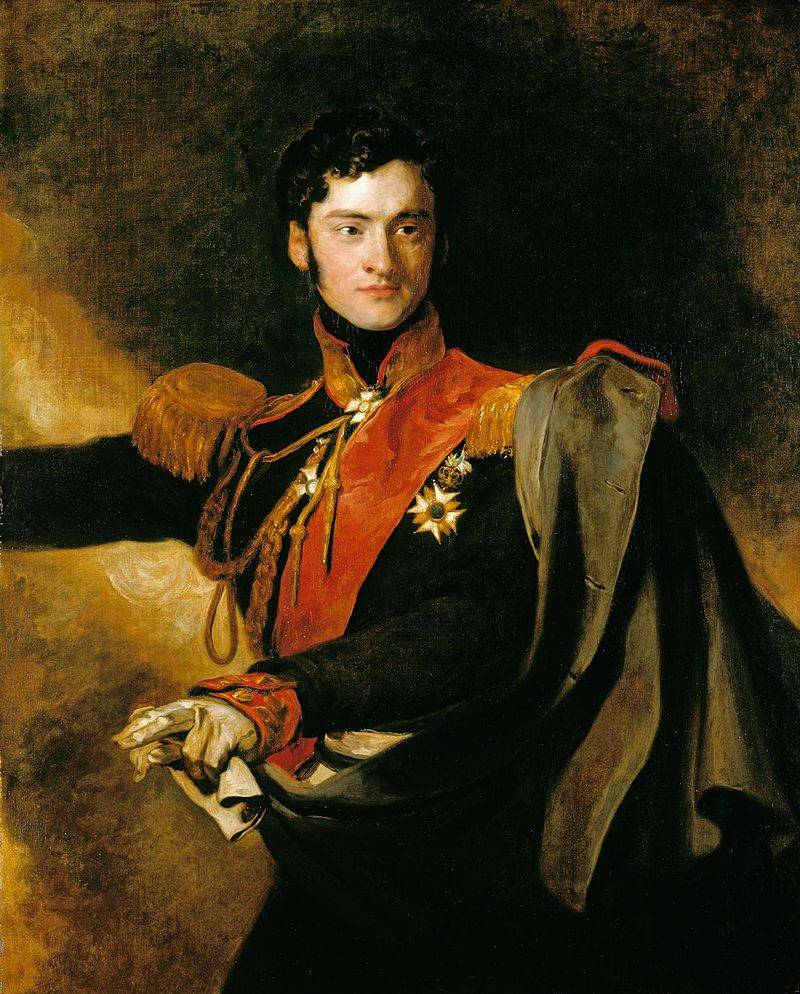
This partisan, again, is practically unknown in our country due to his participation in the "case of the Decembrists." It was Chernyshev who personally arrested Pestel, and then, contrary to tradition, ordered the re-hanging of K. Ryleev, P. Kakhovsky and S. Muravyov-Apostol who had fallen off the crossbar.
The liberated Wintzingerode visited St. Petersburg, where he was received by Alexander I and awarded the Order of St. Alexander Nevsky. After the Berezina, he received command of the II Infantry Corps, at the head of which he took part in the Foreign Campaigns of the Russian Army in 1813–1814.
Wintzingerode in the Foreign Campaign of the Russian Army
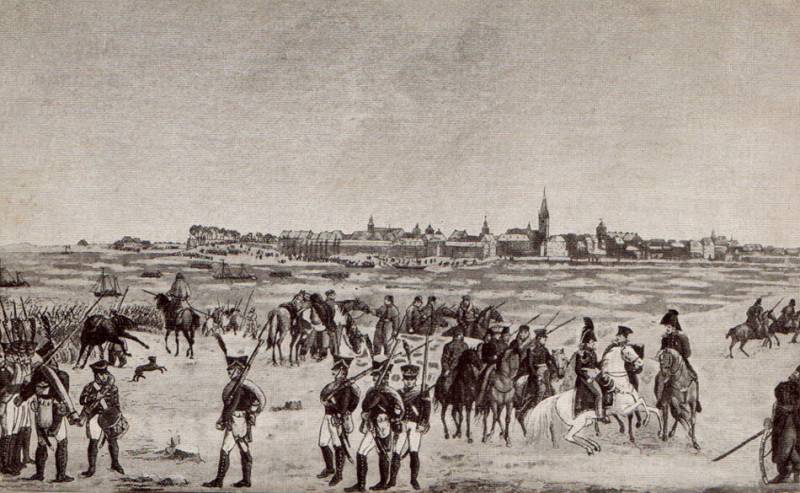
With the beginning of the Foreign Campaign, K. I. Wintzingerode was appointed commander of the Second Infantry Corps, which operated as part of the Allied Northern Army. This army was led by the Crown Prince of the Kingdom of Sweden Karl Johan, that is, the former Napoleonic Marshal Jean-Baptiste Bernadotte.
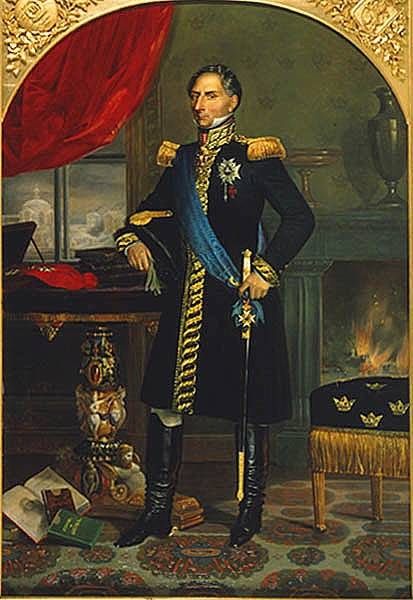
In the battle of Kalisz on February 1 (13), 1813, Wintzingerode defeated the Saxon units of General Reynier, for which he received the Order of St. George II degree. Then his corps as part of the Northern Army took part in the battles of Groos-Beern and Dennewitz. For courage and diligence in the Battle of Leipzig, he received the rank of general from the cavalry and the Order of St. Vladimir II degree.
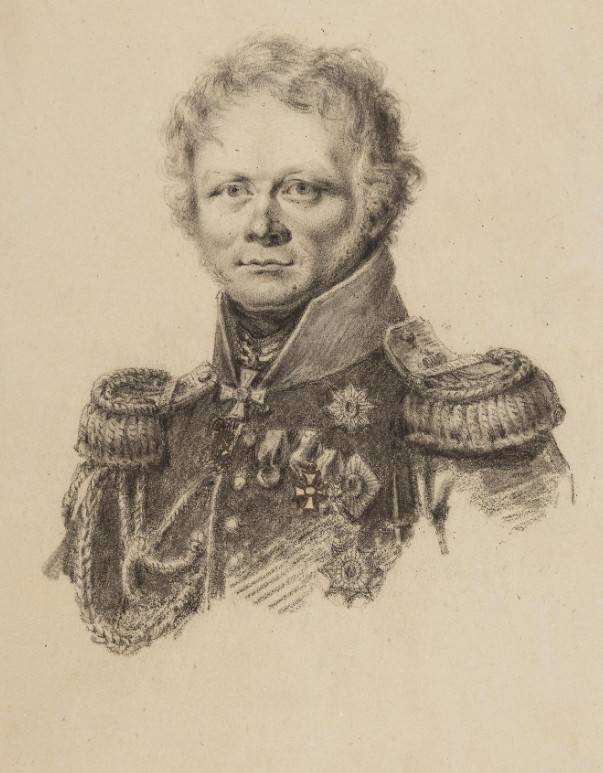
And this is how the general from the cavalry of Winzingerode appears before us in the portrait of K. V. Charsky, written in the same 1814:
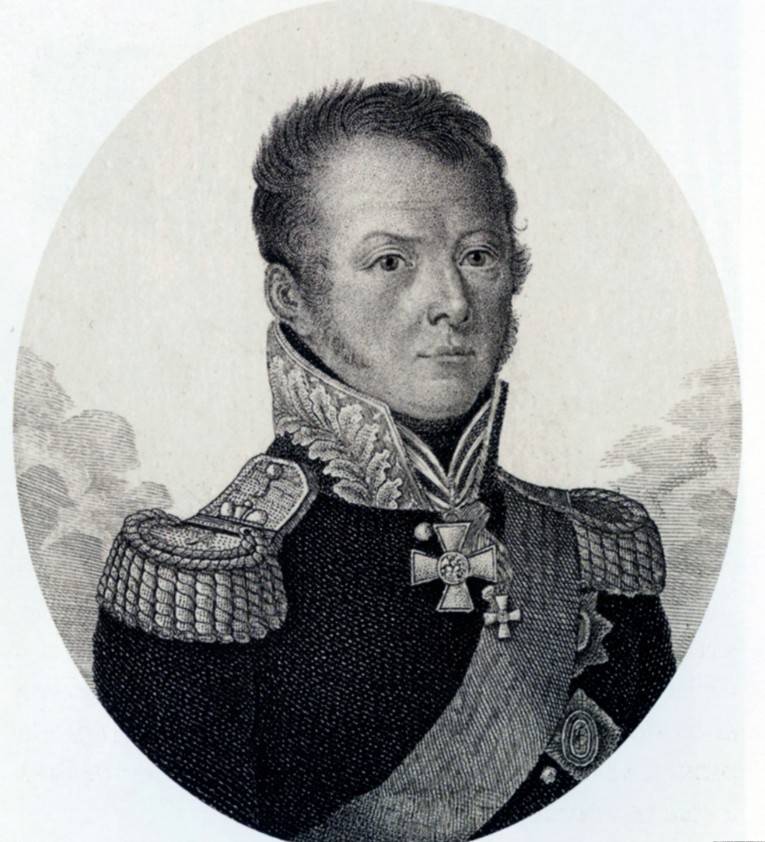
By the way, then he removed the notorious Denis Davydov from the command of three Cossack regiments, who, contrary to the order, entered into negotiations with the French commandant of Dresden. As a result, an agreement was signed allowing the five thousandth enemy detachment to safely leave the besieged and doomed city. Davydov was sent to headquarters, where he was supposed to await trial, but Alexander I forgave him.
In 1814, the Winzingerode Corps was part of the Silesian Army, commanded by the Prussian Field Marshal Blucher. It was Winzingerode who accepted the surrender of the city of Soissons, for which he was awarded the Order of St. Vladimir, XNUMXst degree. Then, becoming the commander of the Second Reserve Cavalry Corps, he commanded the right flank in the battle of Laon, was the commander of all cavalry units during the battle of Craon. In Allied-occupied Paris, he received a golden sword with the inscription "For Bravery".
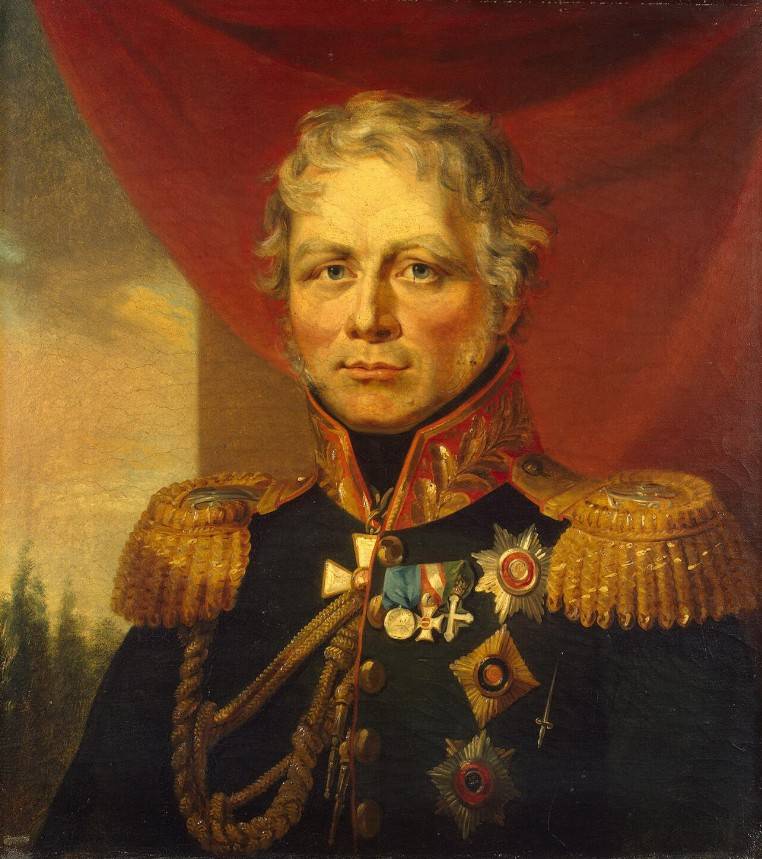
The last years of the life of Ferdinand von Wintzingerode
In 1815, after the return of Napoleon from the island of Elba, the hero of our article took part in the Second Foreign Campaign of the Russian Army. But, as you know, after the defeat at Waterloo, the French emperor abdicated a second time and stopped fighting.
In July 1817, Wintzingerode was given command of the Separate Lithuanian Corps. However, already on June 4 (16), 1818, he died in Wiesbaden, where he went for treatment and a meeting with relatives - the 48-year-old general was found dead under a tree. The cause of death was declared a stroke (apoplexy). Here he was buried.
Grave of Ferdinand Winzingerode in Wiesbaden:
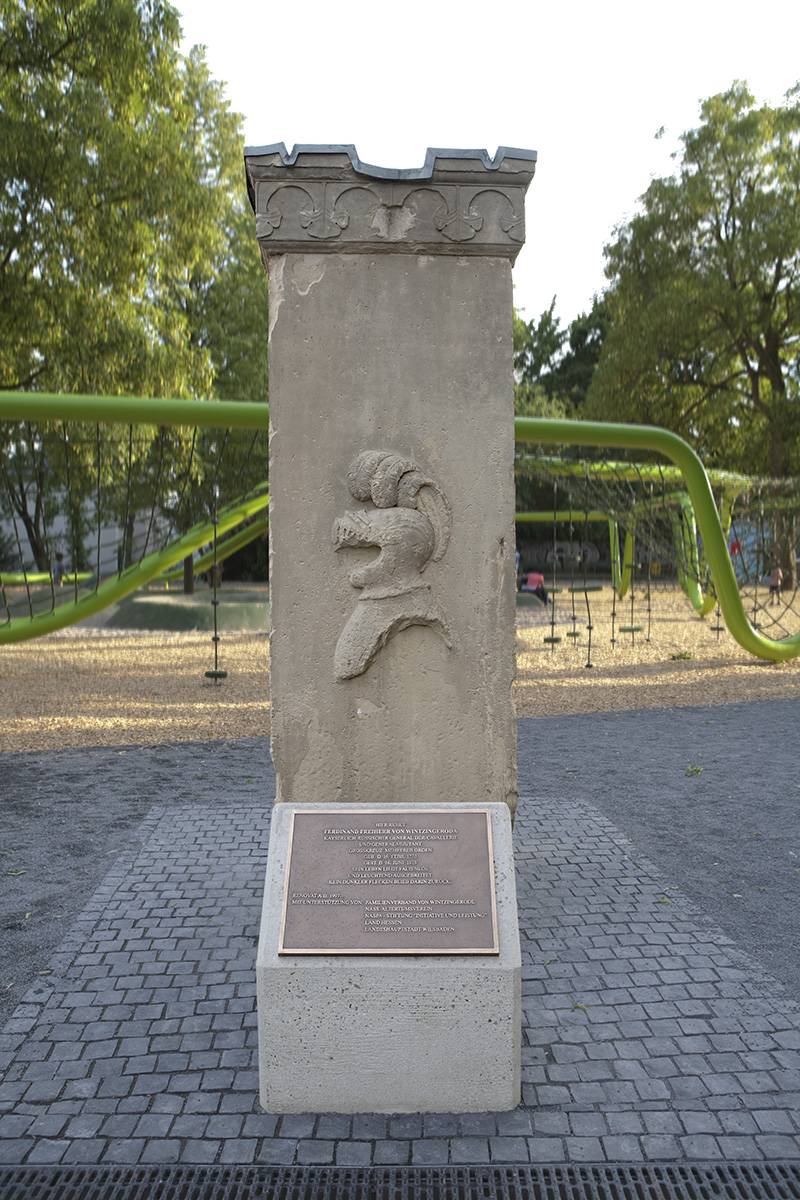
Epitaph:
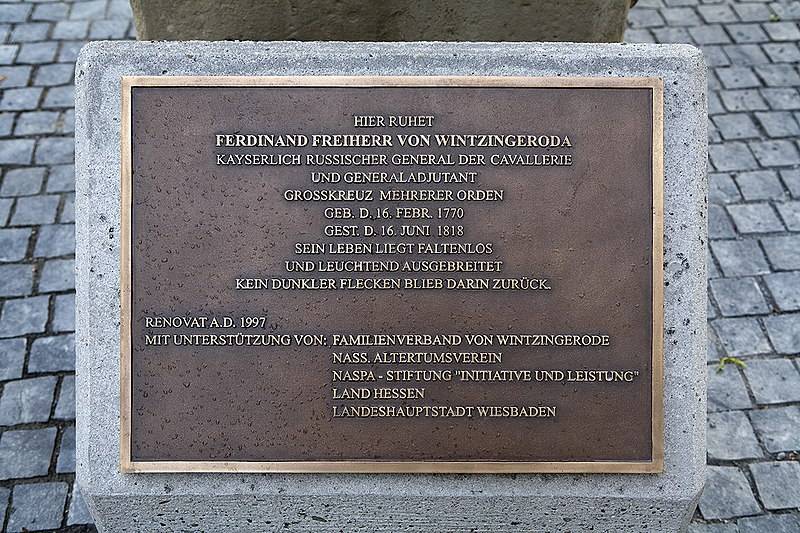
There are currently Winzingerode streets in Vienna, Leipzig and Hannover.
The only son of Ferdinand Wintzingerode also served in the Russian army and retired with the rank of lieutenant general.
Information